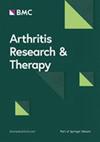Acute systemic macrophage depletion in osteoarthritic mice alleviates pain-related behaviors and does not affect joint damage
IF 4.9
2区 医学
Q1 Medicine
引用次数: 0
Abstract
Osteoarthritis (OA) is a painful degenerative joint disease and a leading source of years lived with disability globally due to inadequate treatment options. Neuroimmune interactions reportedly contribute to OA pain pathogenesis. Notably, in rodents, macrophages in the DRG are associated with onset of persistent OA pain. Our objective was to determine the effects of acute systemic macrophage depletion on pain-related behaviors and joint damage using surgical mouse models in both sexes. We depleted CSF1R + macrophages by treating male macrophage Fas-induced apoptosis (MaFIA) transgenic mice 8- or 16-weeks post destabilization of the medial meniscus (DMM) with AP20187 or vehicle control (10 mg/kg i.p., 1x/day for 5 days), or treating female MaFIA mice 12 weeks post partial meniscectomy (PMX) with AP20187 or vehicle control. We measured pain-related behaviors 1–3 days before and after depletion, and, 3–4 days after the last injection we examined joint histopathology and performed flow cytometry of the dorsal root ganglia (DRGs). In a separate cohort of male 8-week DMM mice or age-matched naïve vehicle controls, we conducted DRG bulk RNA-sequencing analyses after the 5-day vehicle or AP20187 treatment. Eight- and 16-weeks post DMM in male mice, AP20187-induced macrophage depletion resulted in attenuated mechanical allodynia and knee hyperalgesia. Female mice showed alleviation of mechanical allodynia, knee hyperalgesia, and weight bearing deficits after macrophage depletion at 12 weeks post PMX. Macrophage depletion did not affect the degree of cartilage degeneration, osteophyte width, or synovitis in either sex. Flow cytometry of the DRG revealed that macrophages and neutrophils were reduced after AP20187 treatment. In addition, in the DRG, only MHCII + M1-like macrophages were significantly decreased, while CD163 + MHCII- M2-like macrophages were not affected in both sexes. DRG bulk RNA-seq revealed that Cxcl10 and Il1b were upregulated with DMM surgery compared to naïve mice, and downregulated in DMM after acute macrophage depletion. Acute systemic macrophage depletion reduced the levels of pro-inflammatory macrophages in the DRG and alleviated pain-related behaviors in established surgically induced OA in mice of both sexes, without affecting joint damage. Overall, these studies provide insight into immune cell regulation in the DRG during OA.骨关节炎小鼠急性系统性巨噬细胞耗竭可减轻疼痛相关行为,但不影响关节损伤
骨关节炎(OA)是一种疼痛的退行性关节疾病,是全球范围内由于治疗方案不足而导致残疾的主要原因。据报道,神经免疫相互作用有助于OA疼痛的发病机制。值得注意的是,在啮齿动物中,DRG中的巨噬细胞与持续OA疼痛的发作有关。我们的目的是确定急性系统性巨噬细胞消耗对疼痛相关行为和关节损伤的影响,使用手术小鼠模型。我们通过在内侧半月板(DMM)失稳后8周或16周用AP20187或对照(10 mg/kg i.p,每天1次,连续5天)治疗雄性巨噬细胞fas诱导的凋亡(MaFIA)转基因小鼠,或在半月板部分切除术(PMX)后12周用AP20187或对照治疗雌性MaFIA小鼠,来减少CSF1R +巨噬细胞。我们测量了耗尽前后1-3天的疼痛相关行为,并在最后一次注射后3-4天检查了关节组织病理学并对背根神经节(DRGs)进行了流式细胞术检测。在单独的雄性8周DMM小鼠或年龄匹配的naïve对照中,我们在5天的对照或AP20187治疗后进行了DRG大量rna测序分析。在雄性小鼠DMM后8周和16周,ap20187诱导的巨噬细胞耗竭导致机械性异常痛和膝关节痛觉过敏减轻。雌性小鼠在PMX后12周巨噬细胞耗竭后,机械异常性疼痛、膝关节痛觉过敏和体重缺陷均有所缓解。巨噬细胞消耗不影响软骨退变程度、骨赘宽度或男女滑膜炎。流式细胞术检测显示,AP20187治疗后,巨噬细胞和中性粒细胞减少。此外,在DRG中,只有MHCII + m1样巨噬细胞显著减少,而CD163 + MHCII- m2样巨噬细胞在两性中均未受影响。DRG bulk RNA-seq显示,与naïve小鼠相比,Cxcl10和Il1b在DMM手术中上调,而在急性巨噬细胞消耗后在DMM中下调。急性系统性巨噬细胞耗竭降低了DRG中促炎巨噬细胞的水平,减轻了手术诱导的OA小鼠的疼痛相关行为,而不影响关节损伤。总的来说,这些研究提供了对OA期间DRG中免疫细胞调节的见解。
本文章由计算机程序翻译,如有差异,请以英文原文为准。
求助全文
约1分钟内获得全文
求助全文
来源期刊

Arthritis Research & Therapy
RHEUMATOLOGY-
CiteScore
8.60
自引率
2.00%
发文量
261
审稿时长
14 weeks
期刊介绍:
Established in 1999, Arthritis Research and Therapy is an international, open access, peer-reviewed journal, publishing original articles in the area of musculoskeletal research and therapy as well as, reviews, commentaries and reports. A major focus of the journal is on the immunologic processes leading to inflammation, damage and repair as they relate to autoimmune rheumatic and musculoskeletal conditions, and which inform the translation of this knowledge into advances in clinical care. Original basic, translational and clinical research is considered for publication along with results of early and late phase therapeutic trials, especially as they pertain to the underpinning science that informs clinical observations in interventional studies.
 求助内容:
求助内容: 应助结果提醒方式:
应助结果提醒方式:


